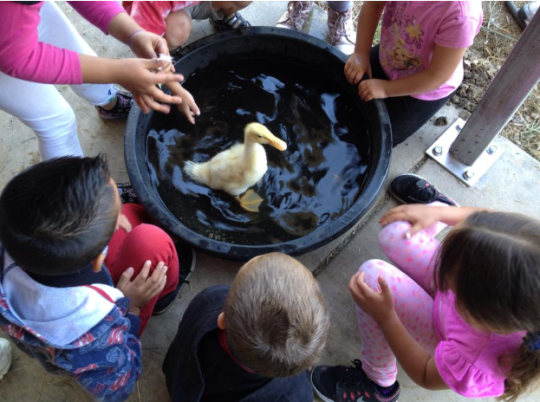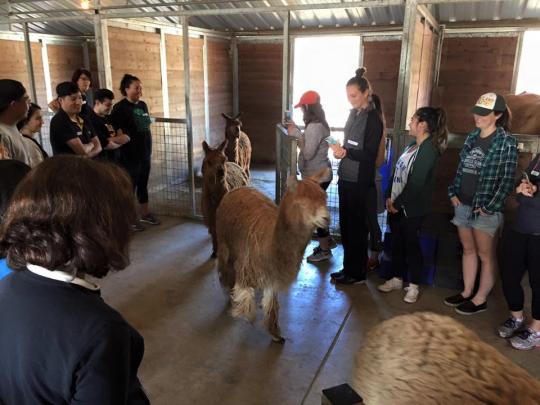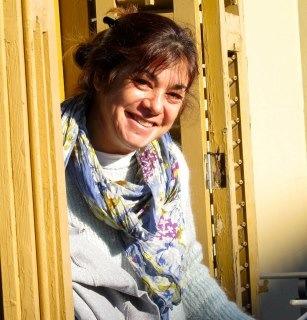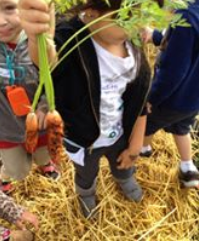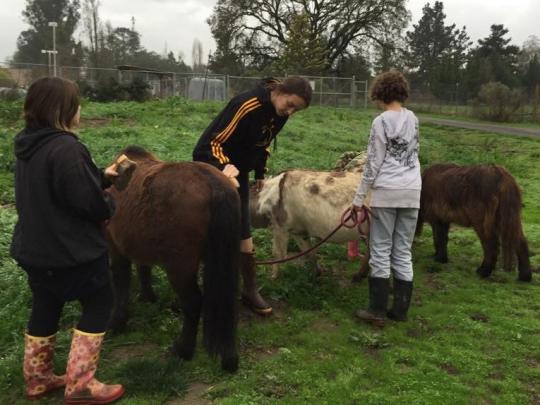Service-Learning Case Study: Psychology, Human Development, & Sociology
"Service-learning is a great opportunity to engage the students in making a difference in their communities. I believe strongly that learning is experiential and not just textbook and classroom based." - Suzanne Maggio-Hucek
Suzanne Maggio-Hucek is a service-learning professor in the Psychology, Human Development, and Sociology departments at Sonoma State University. She's been teaching at Sonoma State for ten years and started teaching service-learning about two years ago. She attended Boston College where she majored in English and then received her Masters in Social Work from Sacramento State. She's taught a variety of different topics such as life skills and peer counseling. She explained, "I love teaching, I love inspiring people, I love helping them find their purpose through education. And that's how I got interested in service-learning."
As a social worker, she worked to make a difference in the world around her. Service-learning helps students learn about their community as well as themselves. When asked why she feels service-learning is a beneficial pedagogy, Suzanne said that "it has the capacity to educate on many levels at once." Suzanne provides evidence that service-learning can be used in every discipline because she uses it for courses in all three of departments she teaches in.
Forget Me Not Farm is an organization that Suzanne's service-learning courses partner with. The Farm is a program through the Sonoma Humane Society that offers therapeutic activities that provide a haven for children and animals to bond, learn, and heal with one another.
They offer a unique place where the children can come and engage in nurturing and healthy relationships with rescued farm animals. This healthy relationship building is crucial because 80% of the youth that comes to the farm have histories of abuse and neglect. Her students really enjoy working with this program because it's much more than just a farm. It's a safe space for at-risk children and animals to grow and have fun together. Students from psychology, human development, and sociology all went to Forget Me Not Farm and were able to see what they were learning in the classroom come to life.
The director of operations at the Farm, Nathan Rathmann had some very thoughtful insight into how the Farm greatly benefits from the service-learning, "The service-learning students from Suzanne's class have joined the ranks of our vast volunteer network, and are actively engaged with our children teaching them core values such as compassion, empathy, caretaking, and sharing as they all come together at the farm and engage in grooming, feeding, or planting activities. Our program is a volunteer-driven program, so having access to Suzanne's students has been a real value to our organization."
The students bring a tremendous value from their age, cultural diversity, and gender. Their presence offers an alternative role model that has more resonance for the children we serve. It is hard to overstate the powerful influence for children in foster care to see people they identify with and will build relationships with people who are in college. It creates a new and exciting vision or possibility for them to pursue further education. The service-learning students also can help change the group dynamic from 'old people telling me what to do', to something more akin to peer-to-peer mentoring and modeling."
Madi, a service-learning student in one of Suzanne's psychology courses, said, "I am thankful I was able to take the service-learning class. I was not expecting to be placed into a consistent volunteer position and it was very beneficial in gaining experience within the psychology field. The class was very insightful, as well, on information about graduate school and the process in deciding our right paths." This reaction is not uncommon. Suzanne said at first, students are worried about finding time in their schedules to volunteer but after she reminds them that it is part of the curriculum they begin to understand how impactful it will be. In the end, they describe it as hard work, but so worthwhile.
Her students also had the opportunity to work for the Petaluma Health Center. They canvased the Roseland neighborhood in Santa Rosa with information about services the health center offers. Students were able to understand the importance of sharing crucial resources with those that may exist. Brenda Morgan (Spring '16), the AmeriCorps VISTA serving the Petaluma Health Center said, "The service-learners help us so much because spreading awareness of our programs is the only way people will take advantage of them."
The service Suzanne is doing for her service-learning classes isn't easy, but she recommends it to every professor on campus. "There's a lot of frustration with service-learning on my end but I think it's all worth it because at the end of the semester I want my students to have learned, and use that knowledge in their future. Service-learning does that."
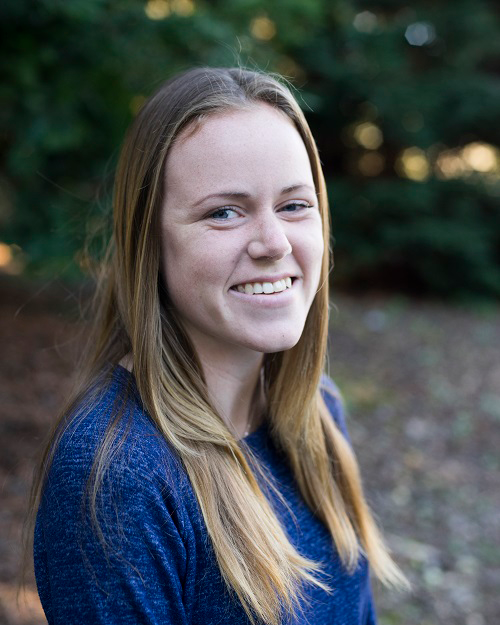
Author: Maddie Wright



